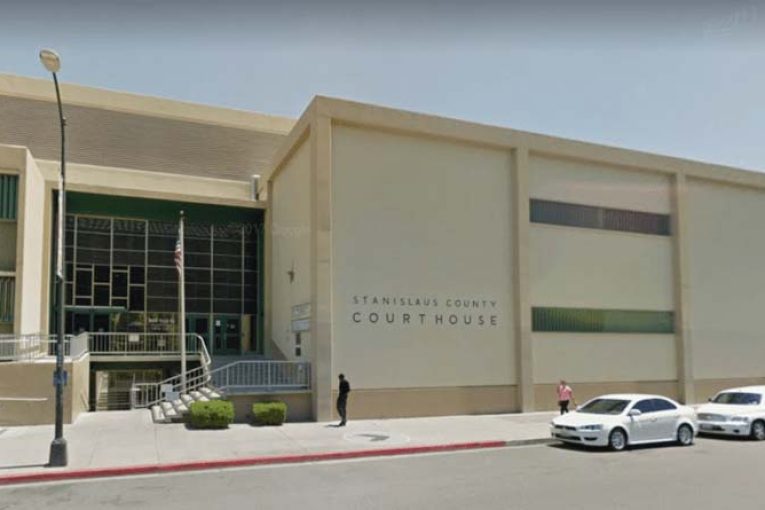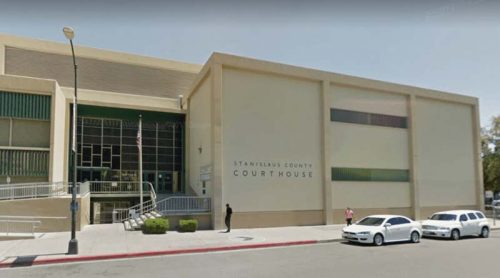

By Citlalli Florez
MODESTO, CA – The defense here in Stanislaus County Superior Court last week asked that a district attorney’s investigator not be allowed to handle key evidence—in the end, the judge agreed.
A man accused of a converted criminal felony to misdemeanor/infraction charge had a law and motion hearing. The two motions heard included a severance motion and a motion to compel discovery.
Judge Carrie Stephens acknowledged a motion to compel discovery and the defense was granted permission to examine the weapon. But the judge ruled it would be with the condition the DA’s investigator would accompany the weapon and observe the testing.
However, the Defense Attorney Mathew Yeoman disagreed with this condition, citing a case identified as Keenan, noting “the record shows that police monitoring is to be limited to the taking of reasonable precautions to prevent the loss or destruction of the evidence.”
The attorney continued, saying “the petitioner was encouraged to seek further assistance from the court to ensure the defense testing was conducted in reasonable privacy.”
The defense counsel said the detective ordered to accompany the weapon is not a neutral party, that the detective has been part of the investigation and has interviewed the accused. There allegedly would not be sufficient privacy if the detective delivered the firearm.
Attorney Yeoman revealed the gun has already been tested a couple of times and that the gun is defective, arguing “this is not evidence that is going to evaporate. It’s a firearm. Not DNA that is going to be used up in a sample.”
The defense had not been previously invited to participate in any tests conducted by the DA and Department of Justice.
Judge Stephens rebutted, “I don’t think the case [The People v. Keenan] stands for the proposition that the court should order the defense investigator to pick it up, to be allowed to pick up the weapon, to bring it to a laboratory, to conduct whatever tests it wants to.”
She didn’t believe that the Keenan case stood for what the attorney was arguing. She also admitted she does not know what “privacy” means in this case.
However, Defense Attorney Yeoman thinks it would at least involve an officer not familiar with the case being the person to observe the weapon being tested. He said he didn’t see how the accused could possibly have some privacy without a precaution being put into place. 
The judge opposed this by suggesting the reason the court would have an order for a DA investigator or someone else to accompany the weapon is to assure the evidence is maintained. She believes there would need to be communication with the DA’s office.
The defense argued again that whoever accompanies the weapon does not have to be familiar with the details of the investigation. The attorney said that is what would happen if he wanted to see evidence from the evidence locker.
He claims that a custodian would retrieve the evidence with rubber gloves and have no familiarity with the case. He believes that this should be the bare minimum of what should be required for a case like the one being presented.
If it’s a situation where the court is saying that the gun cannot be delivered to the expert then it would become a question of whether the expert could do any testing at the place he usually does it. The tester usually gets mailed any evidence which needs to be tested, he said.
The defense would need to pay for travel expenses to have the evidence sent to the expert. The investigator would also need to appear, which would also take up time and necessitate more funds.
Judge Stephens responded, “I think it meets everybody’s interests if the court makes an order that allows your expert to examine the gun at his facility provided that there is a neutral DA representative who observes that.”
She will approve of anyone who might not be the lead investigator of the case.
The severance motion and motion to compel hearing will proceed in the future. The jury trial will take place April 24, 2023. 